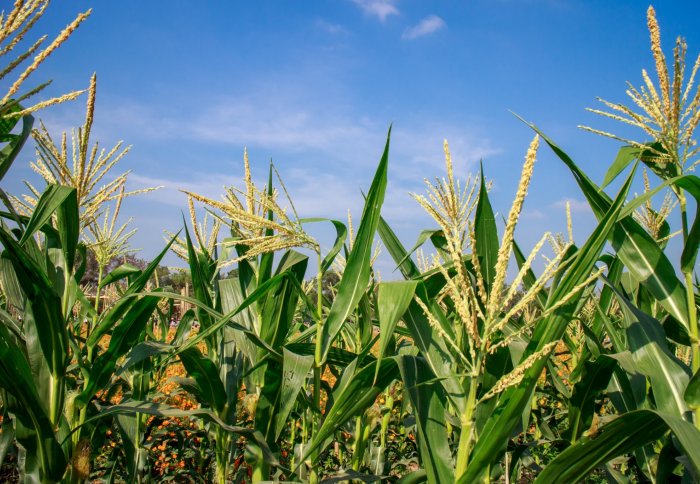Imperial experts launch climate-friendly food production initiative at Davos

A project designed to draw over a million farmers into sustainable global food supply chains has been announced at the World Economic Forum.
The WINnERS project, led by Imperial academics, aims to insure farmers against crop loss caused by weather hazards and climate change. This is expected to save the average supply chain – from smallholder farmers to end buyers such as supermarkets - billions of dollars per year.
WINnERS aims to create an insurance infrastructure that protects insures the most vulnerable members of the supply chain against crop loss. The scheme will also give financial aid to farmers by allowing them to access investment capital.
The project is being rolled out through Tanzania initially, with 50,000 newly insured farmers and will be broadened across Sub-Saharan Africa by 2020. It is being supported by the World Food Programme’s Patient Procurement Platform, and other commercial partners.
Currently, a quarter of a billion farmers around the globe are not integrated into commercial supply chains, which represents a $50bn crop production opportunity for world food markets. For the first time, the WINnERS project will provide farmers with risk management solutions which allow financial services firms to provide investment capital for smallholder farm operations.
These investments will promote agricultural practices that increase maize yields alone in developing economies by at least threefold, improving the lives of millions and advancing food security. When the project is rolled out across East Africa, it is expected that maize yields will boost GDP (gross domestic product) by 8 percent, contributing more than $24.6 billion to the East African economy. Across Sub-Saharan Africa as a whole, the impact of the initiative on maize yields is projected to improve GDP by almost 3 percent.
The WINnERS project demonstrates that properly designed risk solutions such as crop loss insurance can provide a powerful mechanism to incentivise small hold farmers to adopt more resilient production technologies.
– Dr Enrico Biffis, Associate Professor of Actuarial Finance
Imperial College Business School
Professor Sir Gordon Conway, Senior Advisor to the WINnERS Project and Chair in International Development at Imperial College London said: “By 2050, the world will be home to some 9.7 billion people. It is expected that food production will need to double by this time to accommodate this steep rise in population. Even though smallholder farmers are trapped in a cycle of low crop productivity with little access to finance they produce half of the world’s crops.”
“A significant aim of WINnERS is to create a sustainable and commercially viable system to protect these farmers against the uncontrollable impact of global warming through increased farm productivity, financing and revenues across the supply chain.”
Targeting a quarter of a million smallholder farmers over the next two to three years, the project is expected to contribute 2 percent to Tanzanian GDP annually. The increase in production value is projected to be close to $900m, benefitting the wealth of farmers, traders and the broader economy.
Dr Erik Chavez, Executive Director of the WINnERS Project and Research Fellow at the Centre for Environmental Policy at Imperial College London, said: “Our roll-out in Tanzania is demonstrating a new paradigm for the global supply chain and, at Davos, we have presented our plans to implement the project across Sub-Saharan Africa with insurance, banking, retailing and manufacturing partners, as well as with key governmental stakeholders. Creating a truly sustainable supply chain will have a transformational impact for farmers, traders, end buyers, such as manufacturers, food retailers – and, indeed, for society as a whole.”
Dr Enrico Biffis, Associate Professor of Actuarial Finance, Imperial College Business School said: “The WINnERS project demonstrates that properly designed risk solutions such as crop loss insurance can provide a powerful mechanism to incentivise smallholder farmers to adopt more resilient production technologies. These in turn reduce insurance costs and attract cheaper investment capital. Big data allows us to upscale insurance at an unprecedented level, and has the potential to generate a systemic shift in food systems.”
Zen Makuch, Head of Department, Centre for Environmental Policy, Imperial College London said: “Disruptive innovation is at the heart of our WINnERS Project. Connecting our first-in kind insurable instruments to world-leading centres of capital mobilisation in the service of developing world farmers is what we are all about. We have revolutionised public-private partnerships towards the achievement of world food security.”
The full report can be viewed on this website link
Article text (excluding photos or graphics) © Imperial College London.
Photos and graphics subject to third party copyright used with permission or © Imperial College London.
Reporter
Laura Singleton
Communications Division